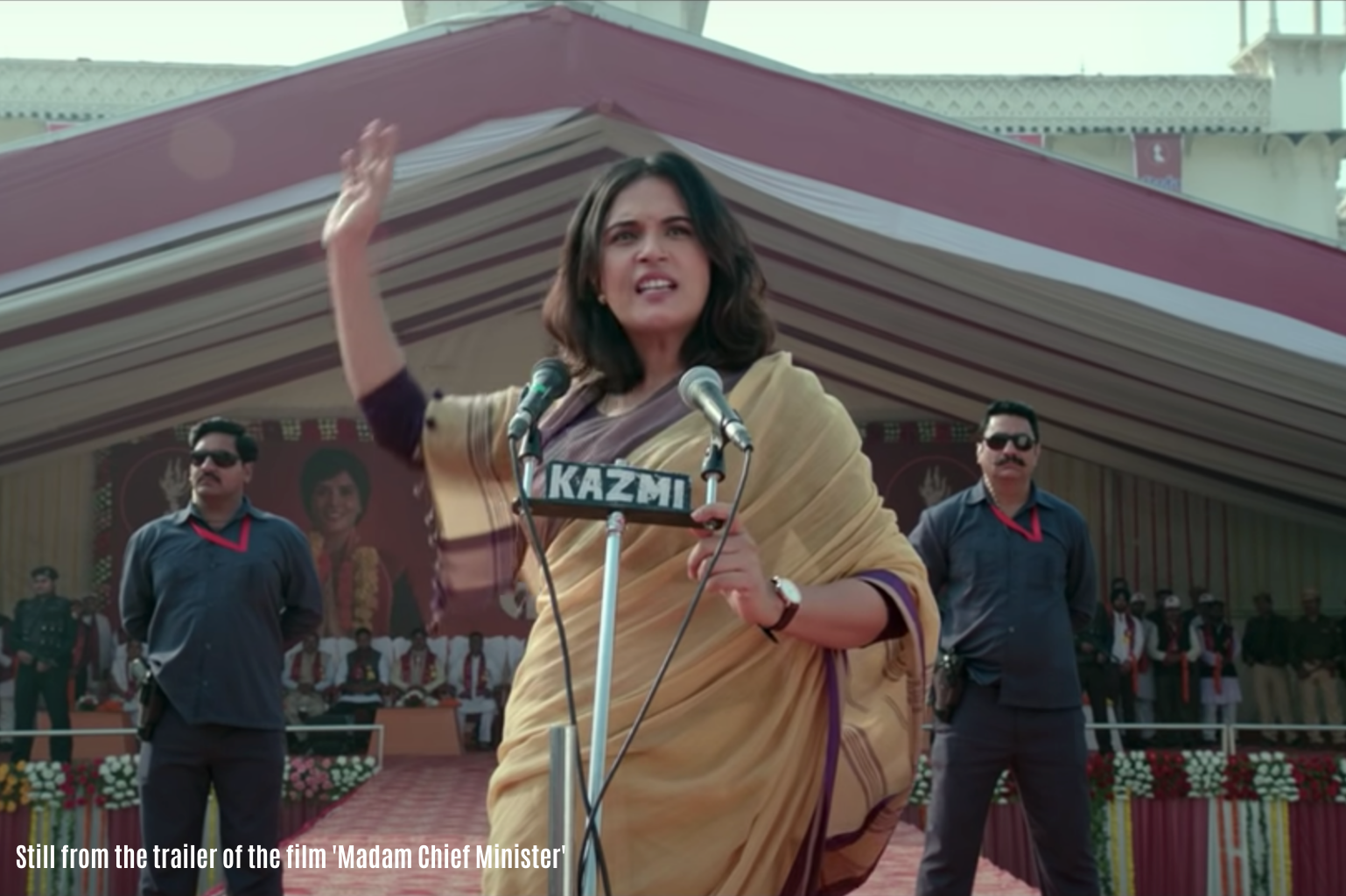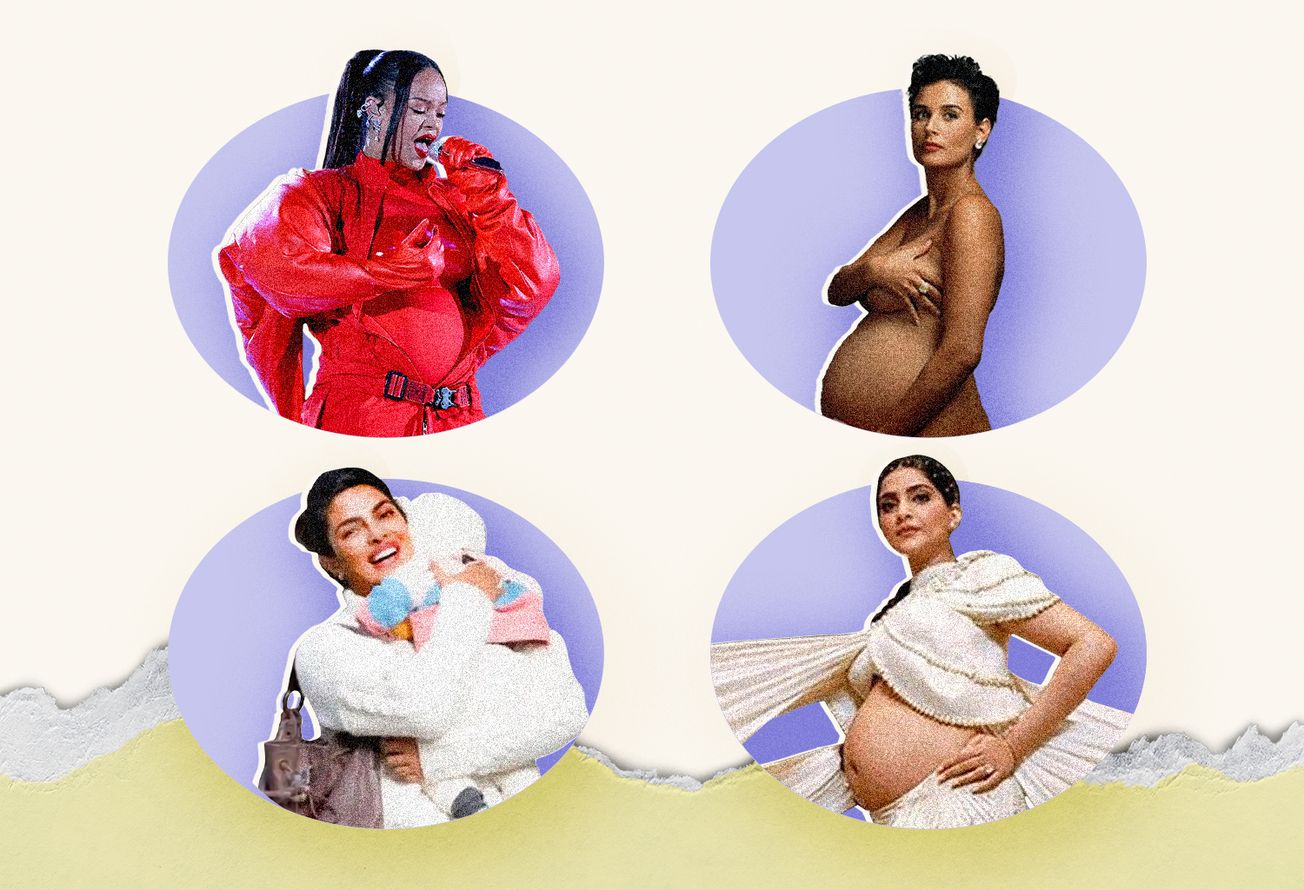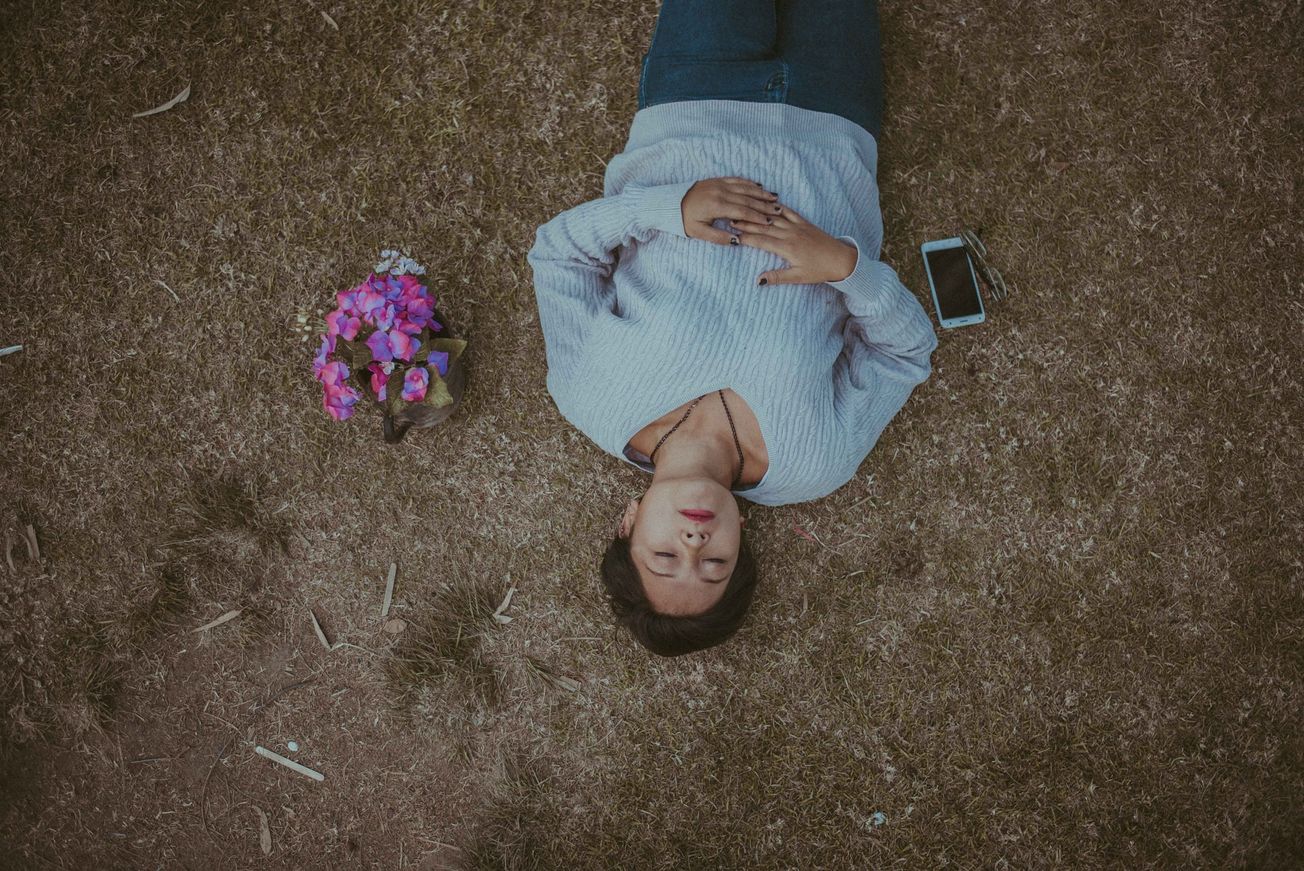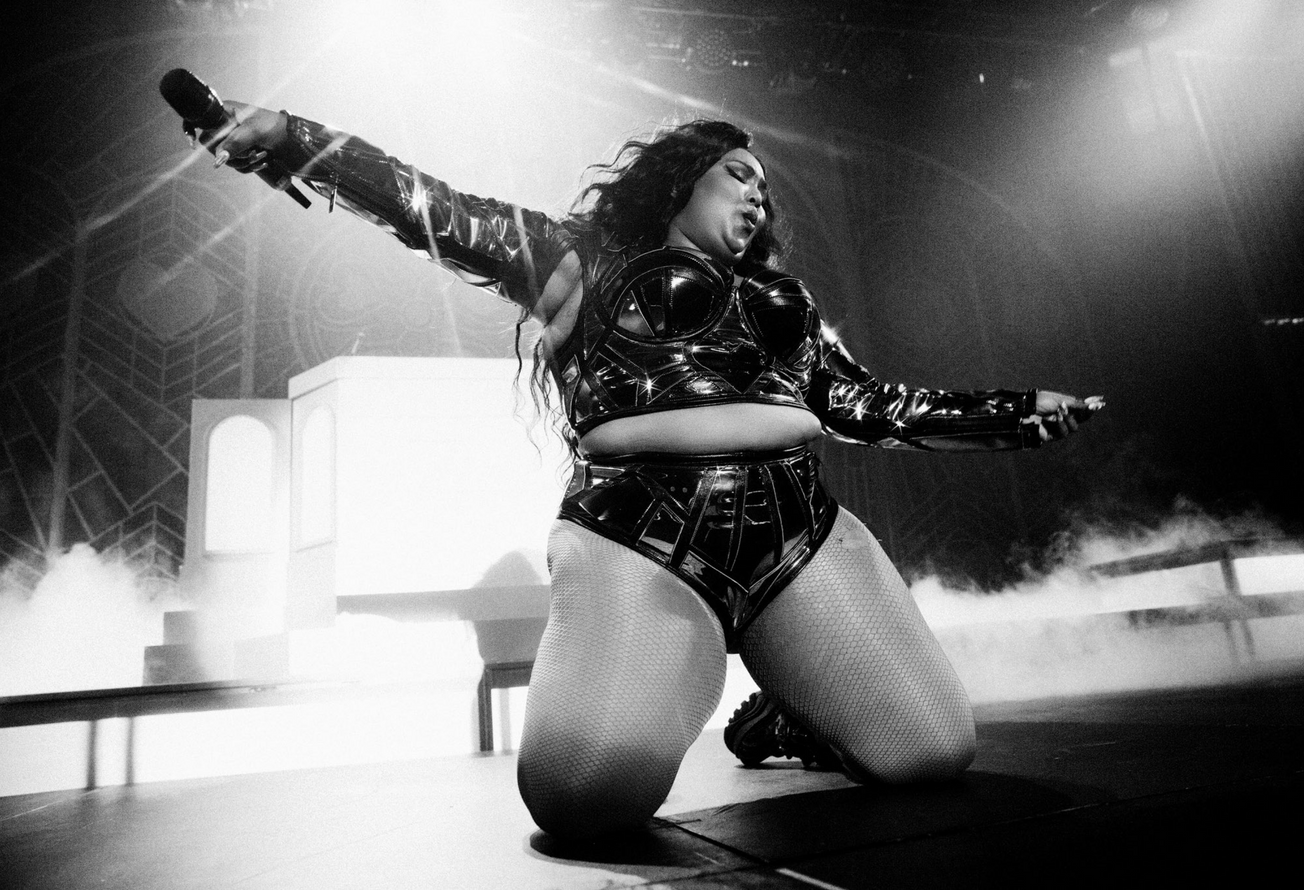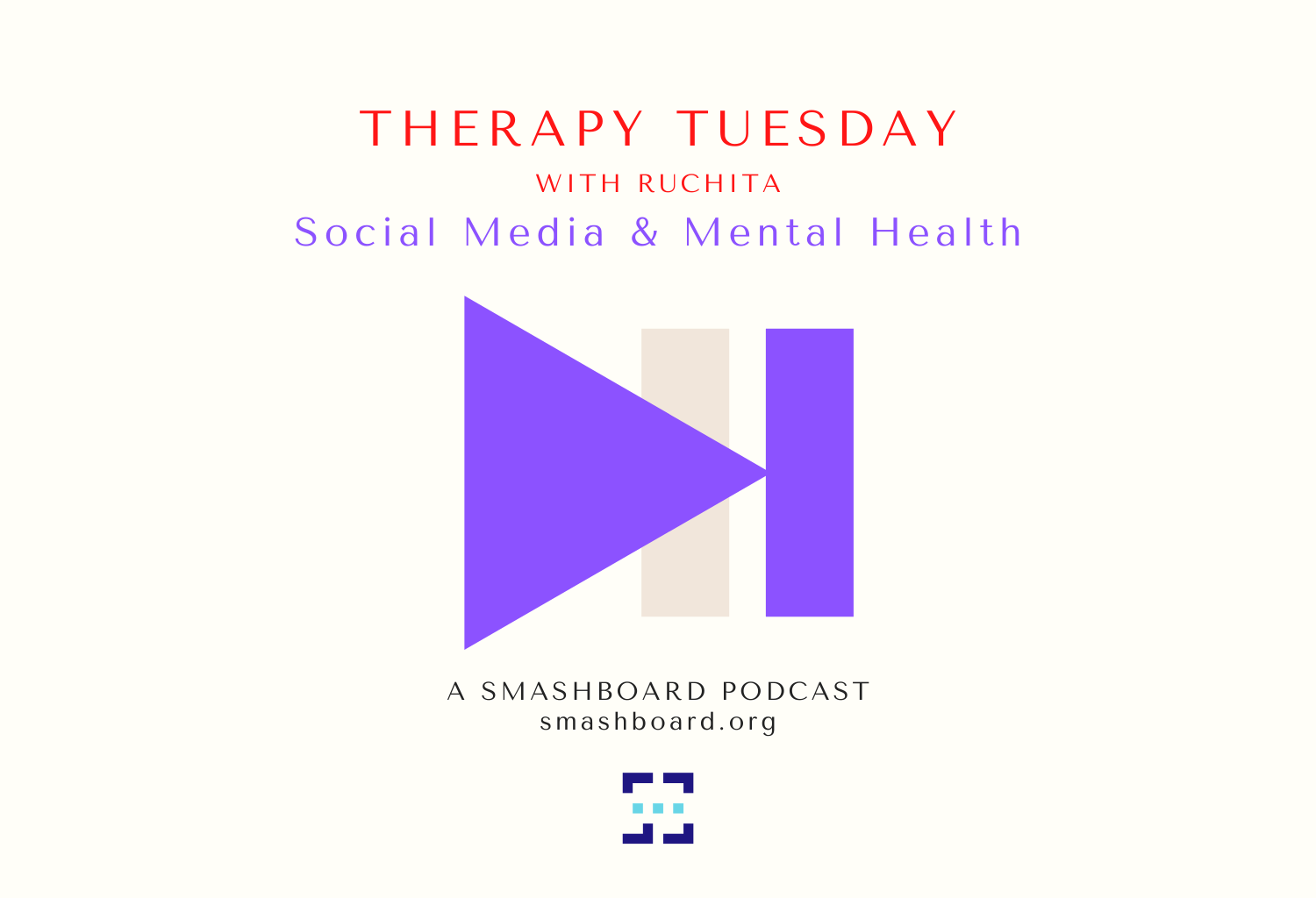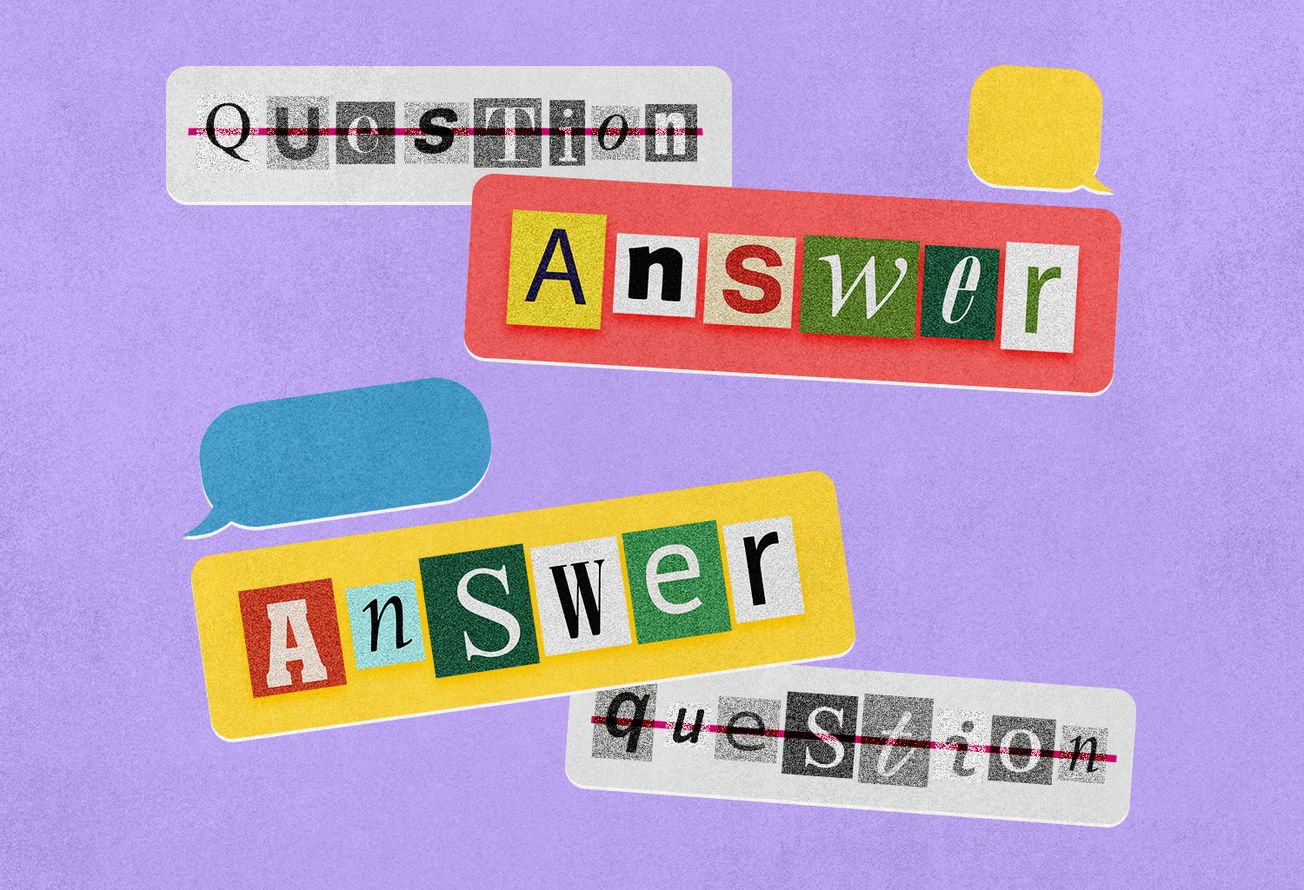This post was first published here.
When Richa Chadha, the leading actor of the film 'Madam Chief Minister' tweeted to reveal the poster of the film, it made many furious. Even though the filmmakers are touting it as fiction, it's more than obvious that the story is inspired by the real life Dalit icon and former Chief Minister, Mayawati. The film's poster shows Chadha, the protagonist, weilding a broom and looking visibly bruised. Her face is stained with what looks like blood (or mud). Many felt this depiction of a Dalit leader was demeaning and casteist and requested Chadha to delete her tweet. But Chadha felt she was being targeted for no reason and had only picked a role she felt was a meaningful one.
Unlike most other celebrities in the Mumbai film industry, Chadha is a very vocal liberal and fiercely critiques the right wing government. She has previously been seen paying homage to Babasaheb Ambedkar, best known for being the architect of the Indian constitution and the much revered leader of the anti-caste movement. However, Chadha refused to back down and insisted she was being "cancelled". She asked people to refrain from attacking her and urged them to wait until they had seen the film. This caused much distress among people who identify as Dalit-Bahujans and many criticised Chadha for not understanding why the poster and her own response on Twitter was casteist.
Here are some takeaways from what we can learn from this social media "incident":
If you are an upper caste (UC) person and cannot understand why people are saying that these are problematic:
- Roles of marginalized caste characters are played by UC people in Indian films
- Stories of caste oppression are being told by UC filmmakers
- Posters are depicting Dalit characters in humiliating, disempowering, casteist stereotypes
…...You need to do a lot more work on yourself.
If you are called out for playing a role of a marginalized caste character when you yourself are UC, what you should do:
- Admit that you took the role because you felt the story was compelling, woman- centric, and you were getting a lead role.
- But also apologize and say you understand now why it was wrong.
- Promise to do better next time and say (and mean it) that you hope such roles will be played by actors from marginalized castes in the future.
- Do not accept roles in films about Dalit people that are not made by Dalit people.
If people are telling you that a poster you shared is triggering, here's what you should not say:
- "There's nothing wrong with the poster. Lol." (Or things to that effect). You are not in a position to decide since you are not living with caste oppression.
- "I can't say no to good roles." Actually, you can, if you see why it's wrong to say yes to some roles. Also, when people are saying your poster/film reinforces casteist culture or negates the violence they face, it's inappropriate to talk about the difficulty of saying no to good gigs at that point.
- "Watch the film first instead of criticising the poster." Rather, say you are sorry the poster was triggering but hope the film won't be.
- "I am being trolled even though I thought in doing this film, I was being anti-casteist." Understand that you are not the victim here. People who are dehumanized by caste violence and the culture that reinforces it are.
You can't believe people are calling you casteist. But if you are anti-caste, why can't you be open to listening? Why is it hard to understand that the story of Dalit oppression being used for a UC commercial project can be very problematic?
If someone is calling you out (or calling in), ask yourself if you can find ways to turn it into an opportunity to learn. Arguing with and refusing to listen to people whose oppression you seem to care about makes no sense.
Cancel culture is real. But people in positions of privilege refusing to listen is oppressive and triggering too. Sometimes, there's no other way to push for political and cultural shifts but to call people out. And calling every critique an attempt to cancel is also not ok. If you refuse to engage in mindful ways with people fighting an ugly oppression, they will raise their voices louder against you.
To de-escalate, repair as much harm as possible- delete an image that disturbs, offer an apology for words that hurt. Acknowledge the pain of people fighting systemic violence against your own pain at being criticised and decide which of the two should take more space. If you are unable to do any of these, try and remain silent.
It's natural to feel attached to something you have worked hard to make. You believe you have done it with good intent. But systemic bias often comes shrouded in good intent and a sense of entitlement. Your privilege, hard work, and good intent are pitted against people's dignity and survival. Culture has a huge impact on these things, and if you understand that, you won't feel you're being attacked "unnecessarily”.


